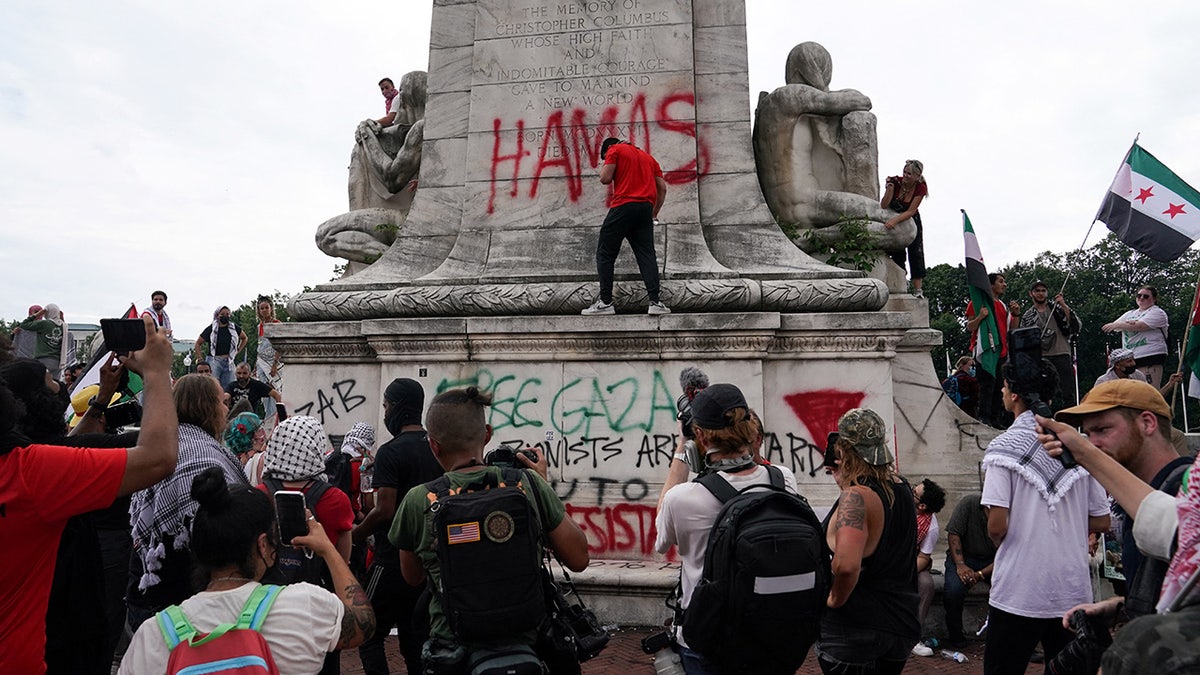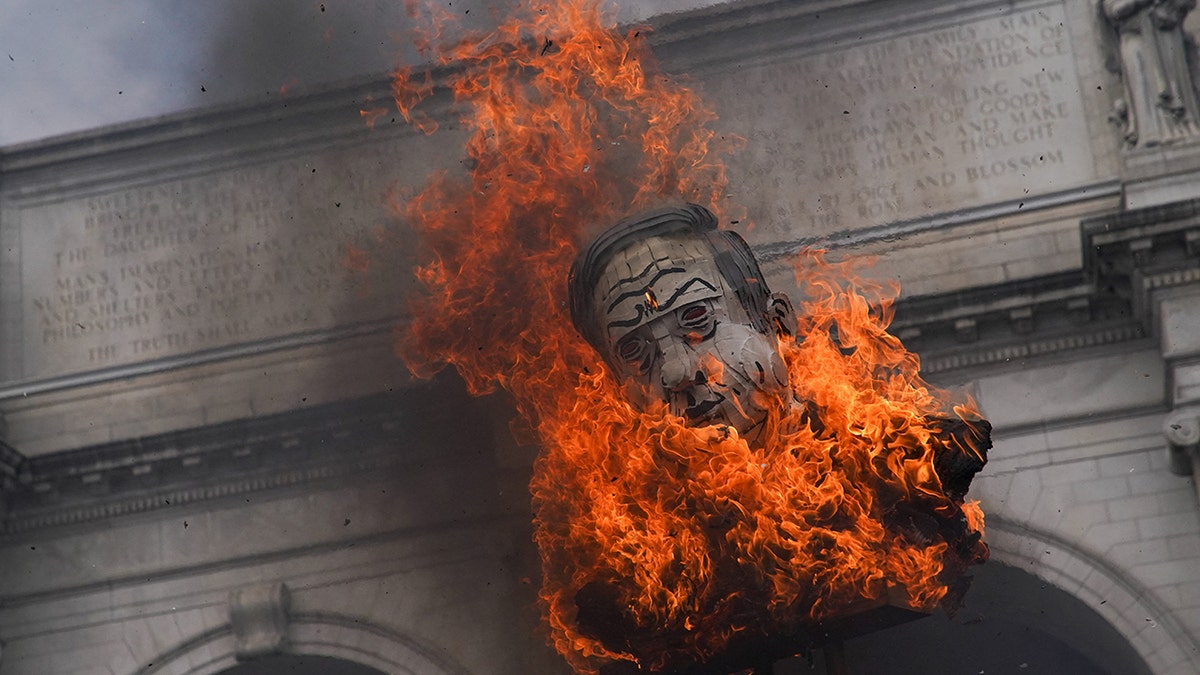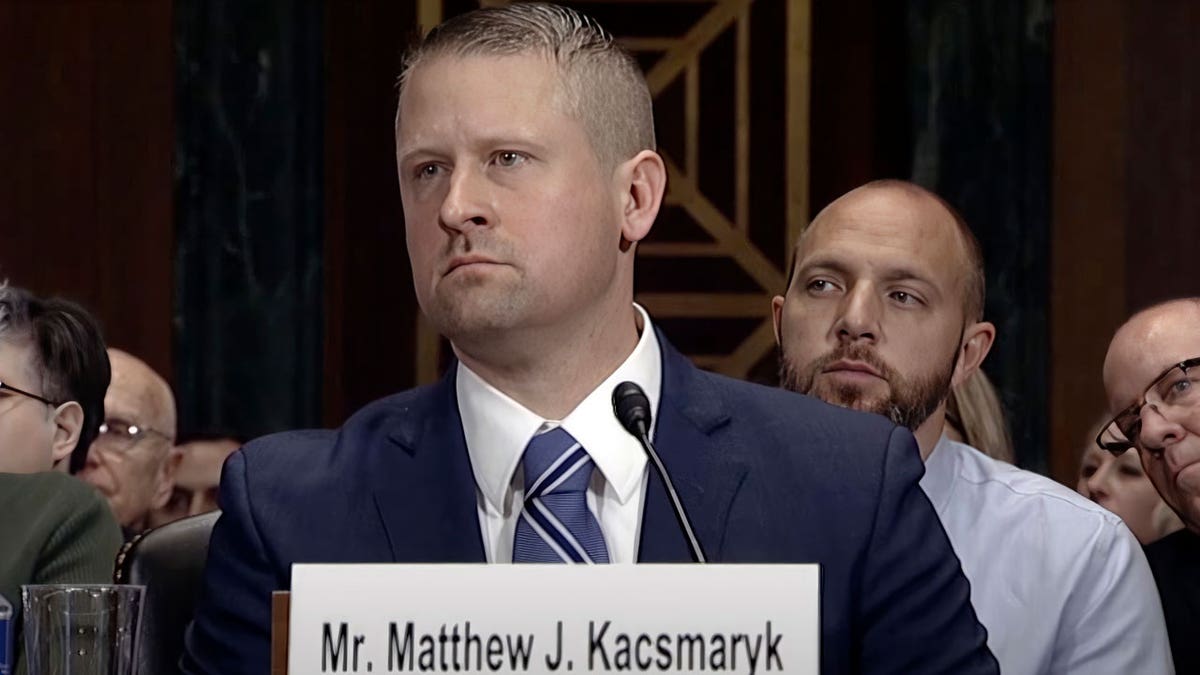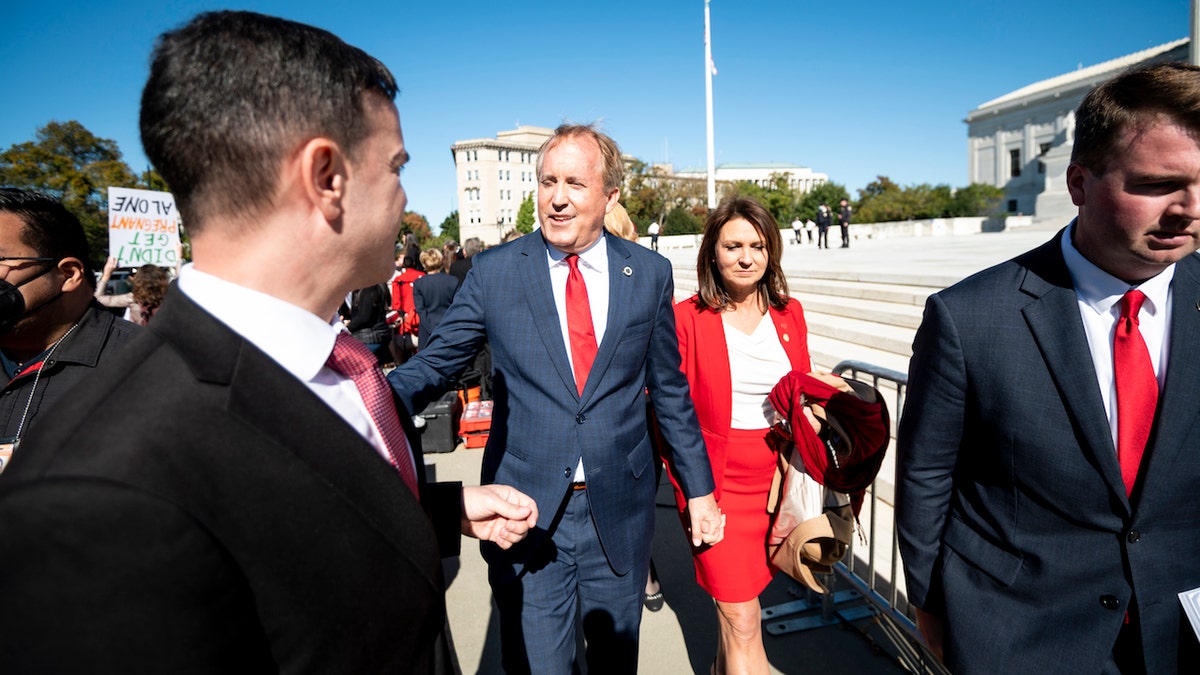Politics
Builders may fight 'impact fees' that fund municipal projects in California, Supreme Court rules

The Supreme Court ruled Friday that developers and home builders in California may challenge the fees commonly imposed by cities and counties to pay for new roads, schools, sewers and other public improvements.
The justices said these “impact fees” may be unconstitutional if builders and developers are forced to pay an unfair share of the cost of public projects.
Developers have contended that limiting California’s high fees would lead to the construction of more affordable new housing.
California state courts had blocked claims arising from “a development impact fee imposed pursuant to a legislatively authorized fee program” for new development in a city or county.
But the 9-0 Supreme Court decision opened the door for such challenges. The justices revived a constitutional claim brought by an El Dorado County man who put a manufactured home on a small lot and was told he would have to pay a “traffic mitigation fee” of $23,420.
The decision could have wide impact in California, since local governments have increasingly relied on impact fees rather than property taxes to pay for new projects.
But the justices did not spell out when such fees become unfair and unconstitutional.
Liberal Justices Sonia Sotomayor and Ketanji Brown Jackson said they joined the majority opinion in Sheetz vs. El Dorado County because it merely allows such challenges.
In a separate opinion, conservative Justice Brett M. Kavanaugh said he saw merit to the “common government practice of imposing permit conditions, such as impact fees, on new development through reasonable formulas or schedules that assess the impact of classes of development rather than the impact of specific parcels of property.”
State and county attorneys had made just that argument. They said it was fairer to impose a development fee on all the lots in an area.
But the justices nonetheless ruled that homeowners and developers may sue to challenge these fees as an unconstitutional taking of their private property. The case will now go back to the California courts.
The Pacific Legal Foundation in Sacramento hailed the ruling as a significant victory for property rights.
“Holding building permits hostage in exchange for excessive development fees is obviously extortion,” said attorney Paul Beard, who represented the El Dorado County homeowner. “We are thrilled that the court agreed and put a stop to a blatant attempt to skirt the 5th Amendment’s prohibition against taking private property without just compensation.”
Beard said El Dorado County “failed to show — and cannot show — that the fee is sufficiently related and proportionate to the traffic impacts” of his client’s “modest home.”
The debate over development fees is especially relevant in California, where local governments have increasingly relied on the charges to finance parks, streets, schools and other infrastructure and services since the 1978 passage of Proposition 13 limited property tax revenues.
The fees have come under scrutiny in other cases as developers and others have blamed them for driving up the cost of housing and for a wide disparity in cities’ fees.
A 2018 study by UC Berkeley’s Terner Center for Housing Innovation found that, depending on the city, fees for new single-family homes could range from $21,000 to $157,000, and could account for 6% to 18% of the median home price.
For decades, the Supreme Court has cast a skeptical eye at California’s regulation of private property. In a pair of decisions, it limited the power of government officials to demand concessions from a property owner in exchange for a building permit.
In 1987, justices ruled for the owner of a beach bungalow in Ventura who was told he could not obtain a permit to expand his home unless he agreed to allow the public access to the beachfront. The conservative majority at the time described this demand as akin to “extortion” and said it violated the 5th Amendment’s clause that forbids the taking of “private property … for public use without just compensation.”
In a follow-up decision involving a store owner who was forced to allow a bike path on her property, the court said the government may not impose such special conditions on property owners unless it can show an owner’s new development would cause direct harm to the community.
But since then, it has been unclear whether this property right applies to development fees or in situations where fees are set by legislation rather than imposed on a single owner seeking a permit.
Writing for the court in Friday’s ruling, conservative Justice Amy Coney Barrett said that “there is no basis for affording property rights less protection in the hands of legislators than administrators. The Takings Clause applies equally to both — which means that it prohibits legislatures and agencies alike from imposing unconstitutional conditions on land-use permits.”
The case arose when property owner George Sheetz sought a permit to put a manufactured home on a lot he owned in Placerville, outside Sacramento. El Dorado County required him to pay a “traffic impact mitigation” fee to obtain the permit. Some of the money was to go toward upgrades to Highway 50, which runs through the area, but most was to go toward new or expanded roads in the county.
Sheetz paid the fee and obtained his permit, then sued to challenge the fee as unconstitutional. He argued that the taxpayers of the county, not the new owner of a small home, should be required to pay for road building.
The justices agreed to hear his appeal after he lost in the California courts.
State Sen. Scott Wiener (D-San Francisco), who has supported legislation to rein in developer fees, said he didn’t expect Friday’s decision by itself to have a significant effect on the debate in Sacramento because it only called out one extreme situation.
“Ultimately, the solution is the same today as it was yesterday,” Wiener said. “The California Legislature needs to put in place an actual structure for impact fees. Right now, it’s all over the map.”
Wiener said he sympathizes with local governments that turn to the fees because it’s easier than raising revenue through broad-based taxes — but he said some cities use sky-high fees to block housing development.
“There is something a little odd about effectively taxing new housing to pay for societal needs that should be paid generally by taxpayers — by the entire community,” he said.
Graham Knaus, executive director of the California State Assn. of Counties, said in a statement Friday that the organization was still reviewing the ruling to understand its implications.
But he said that “limiting the ability to legislatively enact fees will negatively impact the ability of our 58 counties to protect the health and welfare of their communities and drastically limit the building of vital local infrastructure.”
“In many cases,” Knaus said, “these fees are the only tool available to pay for new infrastructure around certain development projects.”
Times staff writer Liam Dillon in Los Angeles contributed to this report.

Politics
Park Police union says officers ‘did everything they could’ during DC anti-Israel riot

Following the protests at Union Station by anti-Israel agitators defacing federal property in protest of Israeli Prime Minister Benjamin Netanyahu’s address to Congress, a Park Police union is pushing back against criticism that only a few arrests were made.
Thousands of Hamas-sympathizing agitators descended on Washington, D.C., Tuesday, at one point defacing federal monuments with phrases in support of the terrorist group responsible for the Oct. 7 attacks in Israel, saying, “Hamas is coming.”
Twenty-three people were arrested at the protests, but some have suggested that number should have been higher.
Sen. Marco Rubio, R-Fla., posted on X, “How many more times are they going to allow leftist degenerates who support terrorism and hate America to vandalize property and attack police? There should have been hundreds of arrests today in D.C. not just 23.”
HOUSE REPUBLICANS REPLACE AMERICAN FLAGS AT UNION STATION AFTER ANTI-ISRAEL PROTESTS
The Columbus Memorial Fountain at Union Station during an anti-Israel protest on the day Israeli Prime Minister Benjamin Netanyahu addressed a joint meeting of Congress on Capitol Hill in Washington July 24, 2024. (Reuters/Seth Herald)
But the U.S. Park Police Labor Committee is pushing back.
“Our officers on the ground did everything they could to protect life and property. In fact, despite having only 29 officers available to mitigate damage — 29! — with no additional help from the Department of the Interior, we processed several arrests for charges ranging from assault on a police officer to destruction of government property,” Kenneth Spencer, chairman of the United States Park Police Fraternal Order of Police, said in a statement.
“That’s why it’s so disheartening to hear some members of Congress and members of the media, many of whom describe themselves as ‘champions’ of law enforcement, suggesting that officers gave protesters a ‘pass’ or that insufficient arrests were made.
“Nothing could be further from the truth. Anyone who truly cares to understand the problem would see that our officer staffing crisis is at the root of our agency’s mission readiness. A small unit of 29 officers arrested 10 individuals while being assaulted by a mob of thousands. We simply did not have the staffing or resources to accomplish a mass arrest operation.”
SEE IT: THE MOST DRAMATIC PHOTOS FROM WEDNESDAY’S PRO-HAMAS WASHINGTON, D.C. PROTESTS

An anti-Israel demonstrator sprays graffiti on the Christopher Columbus Memorial Fountain at Union Station on the day of Israeli Prime Minister Benjamin Netanyahu’s address to a joint meeting of Congress on Capitol Hill in Washington July 24, 2024. (Reuters/Nathan Howard)
At least one demonstrator, whose face was covered, was spotted by Fox News carrying what appeared to be the flag of the terrorist group Hamas while others were heard shouting “Allahu Akbar.”
KAMALA HARRIS REACTS TO ANTI-ISRAEL RIOTS AT DC’S UNION STATION

Anti-Israel demonstrators burn an effigy depicting Israeli Prime Minister Benjamin Netanyahu outside Union Station on the day of Netanyahu’s address to a joint meeting of Congress on Capitol Hill in Washington July 24, 2024. (Reuters/Nathan Howard)
The White House condemned the protests Wednesday evening, calling the chaos “disgraceful.”
“Identifying with evil terrorist organizations like Hamas, burning the American flag or forcibly removing the American flag and replacing it with another is disgraceful,” White House spokesperson Andrew Bates said in a comment to Fox News Digital Wednesday evening.
Politics
Ali: Kamala Harris has a campaign soundtrack: Beyoncé's 'Freedom'

Vice President Kamala Harris’ bid for the presidency has a soundtrack: Beyoncé’s “Freedom.”
The leading Democratic presidential candidate took the stage in her first visit to her Wilmington, Del. campaign headquarters and again during her first campaign rally in Wisconsin as the song played.
Now the cathartic anthem graces Harris’ first campaign ad, in which she says: “There are some people who think that we should be a country of chaos, of fear, of hate. But us? We choose something different: We choose freedom.”
Pit that against the musical number her competitor chose for his grand entrance on Night 3 of the Republican National Conference. Donald Trump walked out to James Brown’s “It’s a Man’s, Man’s, Man’s World,” a tone-deaf choice for a former president found liable for sexual abuse, who’s bragged about sexually assaulting women, a married man who paid hush money to a porn star and a former president who rolled back women’s reproductive rights 50 years with the repeal of Roe vs. Wade.
Maybe the Godfather of Soul would have endorsed Trump’s usage of his song, but Brown would be breaking with decades’ worth of musicians who’ve decried GOP candidates playing their tracks at rallies and booster events. Adele, Rihanna, R.E.M., the Rolling Stones, Prince, Neil Young, Guns N’ Roses and Queen are among the many artists who’ve spoken out against Trump using their tunes for campaign purposes.
Heart bristled when the McCain-Palin campaign used “Barracuda.” Tom Petty insisted George W. Bush back away from “I Won’t Back Down.” Bruce Springsteen decried Ronald Reagan’s appropriation of “Born in the U.S.A.”
Beyoncé, however, gave Harris her blessing to use “Freedom,” a single from her 2016 blockbuster album “Lemonade.” The song, which features guest rapper Kendrick Lamar, is an explosive expression of empowerment. At the time of its release, it spoke to public outcry around police killings of unarmed Black men and women — Eric Garner, Tamar Rice, Freddie Gray — and protests that were largely fueled by the ire of younger generations.
Whether Beyoncé was singing about the tyranny of a cheating spouse or racial injustice (or both), the song became an anthem for a new, potentially potent block of the American electorate.
For the first time, Gen Z and millennials could now account for as many votes as baby boomers and their elders, groups that have made up a majority of the electorate for decades.
Folks under 40 have grown up with Beyoncé and her ubiquitous work. Think of Beyoncé like the Who for boomers — their work is everywhere (Republican Sen. Rand Paul played the band’s anti-war hit “Baba O’Riley” when he campaigned in 2015) — or Nirvana for Gen X, except no one cares what we think. Whatever, nevermind.
The Harris campaign’s smart choice of music coincides with a willingness to lean into a meme culture that shot up organically around the 59-year-old VP since President Biden announced Sunday that he was dropping out of the race.
Pop star Charli XCX showed her support for Harris when she tweeted “Kamala IS brat.” The British singer is referring to the TikTok and Twitter edits of Harris’ image superimposed to songs from Charli XCX’s hit album “Brat.” The avalanche of memes come from a video clip in which Harris talks about her mother’s response to the hubris of youth: “You think you just fell out of a coconut tree? You exist in the context of all in which you live and what came before you.”
Right-wing social media used the quote to deride Harris as inarticulate and a “word salad” master, but liberal swaths of Gen Z have since reworked the clip into emojis and memes that celebrate Harris’ nonconformist approach. She’s become a viral sensation, in a good way, unlike J.D. Vance’s damning “single cat lady” memes and a cringey internet joke about encounters with couches.
It’s rare that relevant talent will shill for a Republican candidate. Case in point: Trump’s pop culture ambassadors at this year’s RNC were Kid Rock, Kanye’s ex Amber Rose and former WWE wrestler Hulk Hogan, whose big moment was ripping his shirt off and screaming “Let Trump mania run wild!”
Harris chose to let freedom ring, and she has Queen Bey behind her.
Politics
Texas sues Biden administration over program giving birth control to teens without parents' knowledge

Texas officials are challenging a recent order from President Biden’s administration that would allow schools to distribute birth control to teenagers without parental consent.
Texas Attorney General Ken Paxton announced Thursday that his office is suing the Biden administration over their 2021 change to Title X guidelines banning parental consent requirements for birth control services.
“By attempting to force Texas healthcare providers to offer contraceptives to children without parental consent, the Biden Administration continues to prove they will do anything to implement their extremist agenda — even undermine the Constitution and violate the law,” Paxton said in a statement.
TRUMP SAYS HE ‘WILL NEVER ADVOCATE IMPOSING RESTRICTIONS ON BIRTH CONTROL’ OR OTHER CONTRACEPTIVES
A woman takes the next pill from a monthly pack of contraceptive pills. (Annette Riedl/picture alliance via Getty Images)
The Texas legal battle began in Dec. 2021 when US District Judge Matthew Kacsmaryk ruled that Title X — the federal program that provides free, confidential contraception to anyone regardless of age, income or immigration status — violates parental rights and violates state and federal laws.
The case was argued by former solicitor general of Texas Jonathan Mitchell, representing father Alex Deanda, who said he was “raising each of his daughters in accordance with Christian teaching on matters of sexuality, which requires unmarried children to practice abstinence and refrain from sexual intercourse until marriage.”
SCHUMER PLANS VOTE ON ‘CONSTITUTIONAL RIGHT TO CONTRACEPTION’ IN BID TO PROTECT SENATE DEMOCRAT MAJORITY

Kacsmaryk, a Trump appointee, previously ruled that parents must be informed when birth control is provided to their children under 18 years old. (Senate Judiciary Committee via AP)
In response, the federal government updated guidelines to state that Title X projects “may not require consent of parents or guardians for the provision of services to minors, nor can any Title X project staff notify a parent or guardian before or after a minor has requested and/or received Title X family planning services.”
Paxton is now seeking a permanent injunction on this rule, which he claims defies the findings of the federal court.

Paxton and his wife Angela are pictured outside the Supreme Court. (Bill Clark/CQ-Roll Call, Inc via Getty Images)
Paxton filed the lawsuit in a federal court in Amarillo. It will likely be heard by Kacsmaryk, the same judge who previously ruled parents must be informed of birth control provided to their children.
-

 World1 week ago
World1 week agoOne dead after car crashes into restaurant in Paris
-

 Midwest1 week ago
Midwest1 week agoMichigan rep posts video response to Stephen Colbert's joke about his RNC speech: 'Touché'
-

 News1 week ago
News1 week agoVideo: Young Republicans on Why Their Party Isn’t Reaching Gen Z (And What They Can Do About It)
-

 Movie Reviews1 week ago
Movie Reviews1 week agoMovie Review: A new generation drives into the storm in rousing ‘Twisters’
-

 News1 week ago
News1 week agoIn Milwaukee, Black Voters Struggle to Find a Home With Either Party
-

 Politics1 week ago
Politics1 week agoFox News Politics: The Call is Coming from Inside the House
-

 News1 week ago
News1 week agoVideo: J.D. Vance Accepts Vice-Presidential Nomination
-

 World1 week ago
World1 week agoTrump to take RNC stage for first speech since assassination attempt













